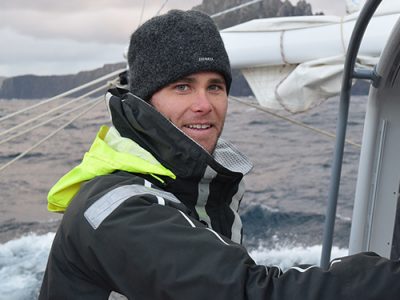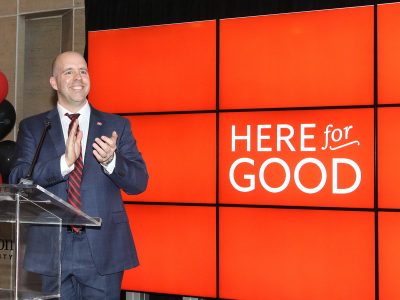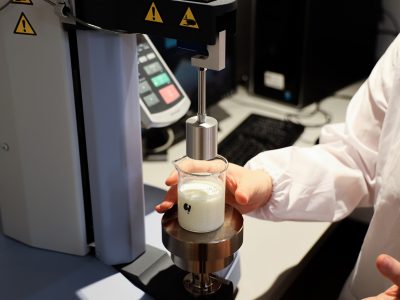By Dan Rubinstein
In 2015, after two decades of legal battles, an unprecedented Caribbean Court of Justice ruling reinforced property rights of the Maya people of Belize, enshrining their system of customary land tenure within the country’s constitution and providing protection from encroaching logging and oil companies.
Two years later, Carleton University student Tianna Doto travelled to the Mayan village of Laguna in southern Belize, where she and a small group of classmates developed an activity booklet to teach children about the court case and how it could impact their lives.
The legal decision “means the land can be for whatever the people and villages need it for, like fishing or raising chickens,” reads a passage on a page that also features a word scramble game using terms from traditional Maya culture. “Whether it be feeding your own family, building new houses for your elders or enhancing your spirituality, this land has and will always be Maya land, but only if we work together to protect it.”
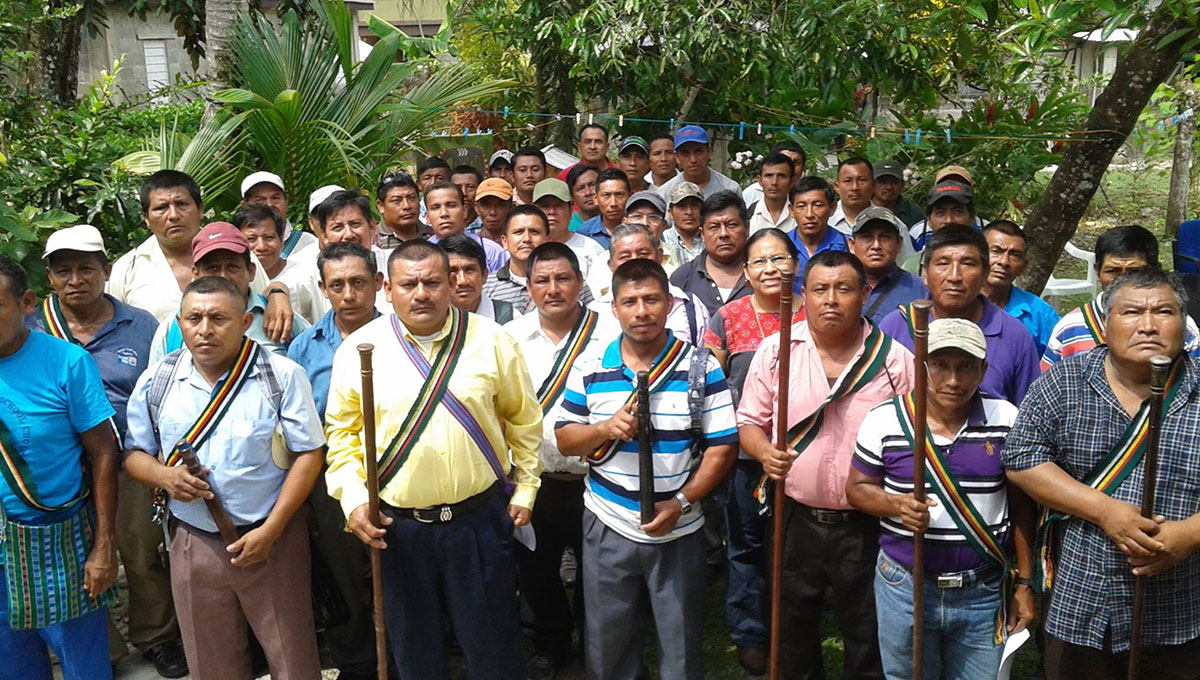
The Maya people of the village of Laguna, Belize
Doto, who is now in the fourth year of Carleton’s Bachelor of Global and International Studies (BGInS) program, specializing in Globalization and the Environment, was in Belize for the inaugural year of GINS 3200, an experiential learning abroad summer course.
The course, which is now open to applicants from BGInS and other programs for summer 2019, was created in collaboration with Belize’s Center for Engaged Learning Abroad (CELA), which develops customized experiential learning programs — with a focus on sustainability — and ensures that both visiting students and locals benefit from the experience.
“The achievements that the Maya people have made in protecting their culture and lands could not have happened without the contribution of many friends of the Maya people,” says Pablo Mis, a Maya Q’eqchi and program director of the Maya Leaders Alliance. “With rights now affirmed to ancestral lands, the Carleton students have made a contribution by raising awareness about the responsibilities that come along with the court decision.”
“It was daunting, being a white woman from Canada and going to Belize to try to help Maya people learn about their history and future,” Doto says about the nearly two weeks she spent in Laguna, a community of about 300, where the Carleton students stayed in a cooperatively-run guesthouse and ate meals in the homes of village families.
“I was conscious about white privilege and being an outsider, and we weren’t there to ‘teach’ but to share stories with children about Maya connections to the land,” continues Doto, who spent three weeks in a classroom on campus getting ready for the trip – learning about the history, economy and culture of the Maya in Belize – and one week in a classroom at Carleton deconstructing the trip afterwards.
“It was incredibly rewarding. There were no textbooks — we learned through what we were doing and through our everyday experiences and interactions. This will really help me prepare for my future.”
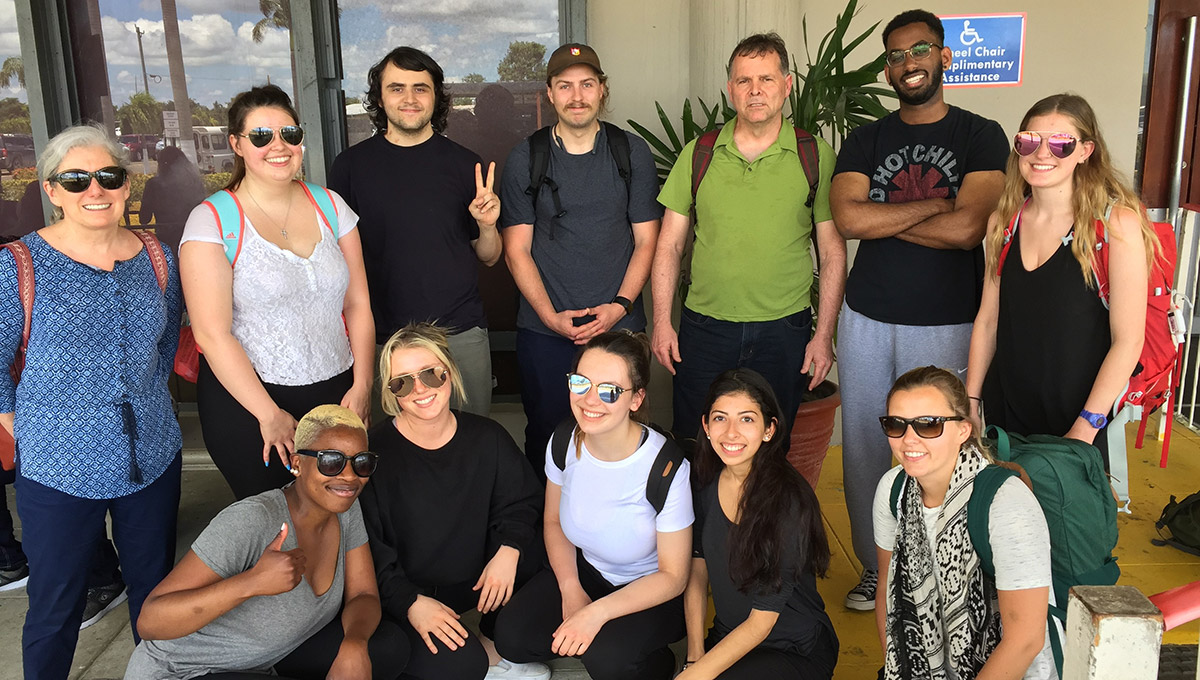
A Collaborative Approach to Experiential Learning
GINS 3200 was launched in 2017, the year Doto went to Belize, after Political Science Prof. Peter Andrée learned about similar overseas experience partnerships between CELA and other Canadian universities. Belize is a particularly good fit because English is the official language in the culturally diverse nation.
There are myriad valid criticisms about “voluntourism” and students from wealthy nations travelling to developing countries for educational experiences that, while well intentioned, can turn out to be exploitative.
Andrée, who will be leading this summer’s trip to Belize and is a principal investigator on the major SSHRC-funded partnership project Community-First: Impacts of Community Engagement (CFICE), says that collaborating with CELA and making a multi-year commitment to Belize was a way to address potential pitfalls.
“Although episodic, we’re building long-term relationships in Belize,” says Andrée, noting that the development of GINS 3200 has been informed by the CFICE project and its goal of understanding how partnering with universities can positively impact communities.
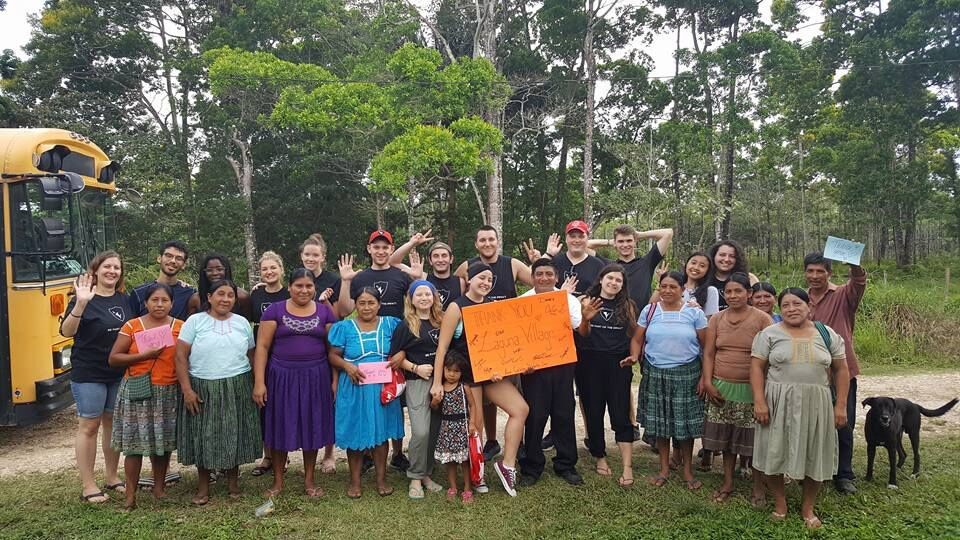
Carleton students and residents of Laguna, Belize
“The Maya have historically been marginalized within society. Working with North American institutions can bring money and profile. We’re not going to solve their problems, but we’re learning about the challenges they face and together trying to come up with ways to deal with these concerns. And we can refine the program year by year.”
The cultural immersion, meanwhile, leaves Carleton students more knowledgeable about both the Maya and themselves. They come to understand that although the people of villages such as Laguna and Succotz (where the students will travel next summer) live rural, low-tech lives, they don’t identify as “poor” and tend to have a strong sense of pride and happiness.
“When you have to process something that’s seemingly a contradiction, it challenges your assumptions very deeply and can lead to a paradigm shift,” says Andrée. “You start to appreciate the richness of Indigenous communities.”
This type of awareness, he adds, is relevant to perceptions about Indigenous communities in Canada as well.
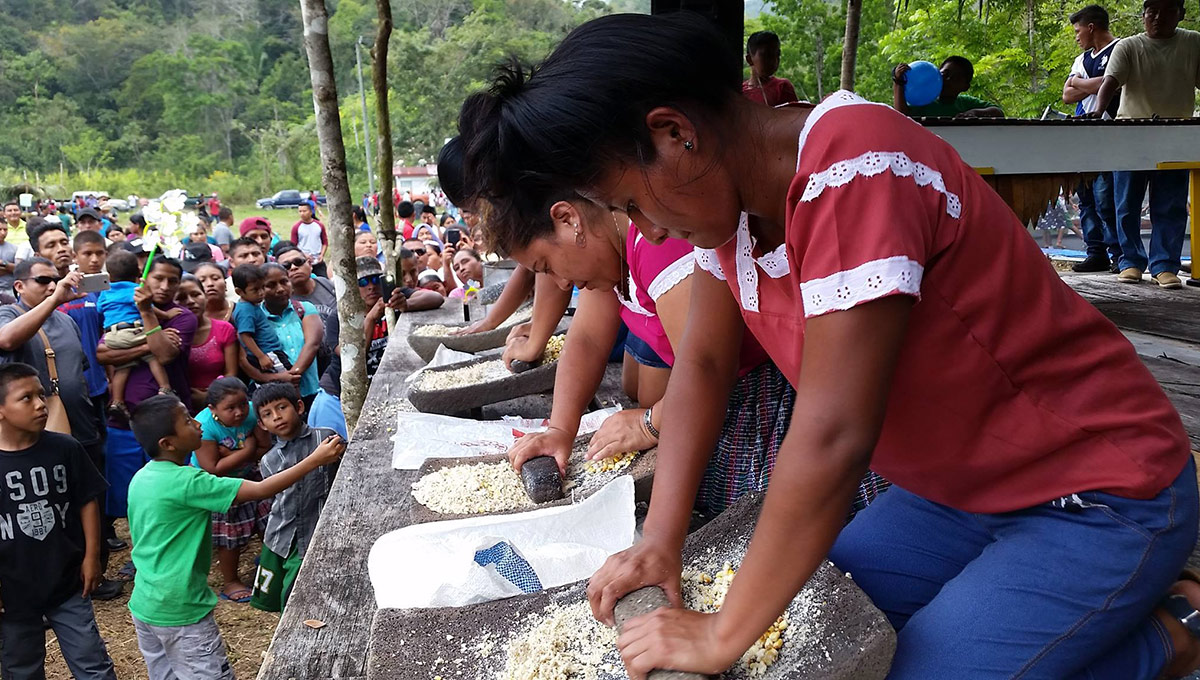
An Opportunity to Help the Community Move Forward
Because the Maya of Belize now have more control over their land, but no formal process for managing their resources, CELA saw an opportunity to help community members collectively discuss and decide upon next steps.
The organization has three types of programming, says Filiberto Penados, the centre’s academic director and a member of the Maya nation: field courses, internships, and faculty-led courses such as GINS 3200.
More Interesting Reads
- International Internship Program Takes Students Across the Globe
- The World is their Classroom
- Learning Through Experience
“Essentially, the idea is that we can make use of the learning opportunities that Belize has to offer,” says Penados, who developed the Carleton course in conjunction with Andrée, paying attention to the needs and values of both parties. “This could be the wildlife in our rainforests or our coral reefs, which is rooted in biology, or Maya history, culture and economic development, which is more political science and international development. We want to use the contexts that we have.”
Penados, whose own research focuses on relationships between Indigenous and non-Indigenous communities, says that Carleton students are helping Maya people in southern Belize understand the implications of the Caribbean Court of Justice ruling.
In 2018, after a series of conversations with community members, Carleton students created a prototype calendar featuring compelling cultural images and key dates, aimed at strengthening self-perception among Maya amid a history of colonialism and oppression. Each month conveys a message, and the calendars can be customized to include localized photos and text.

Carleton students in conversation with community members
They also developed a postcard campaign — powerful images of Maya people, geography or food, for instance, paired with the phrase “This is Maya.” The postcards, which can also be blown up into billboards, are a very effective way to communicate with outsiders, says Penados, and at the same time stimulate cultural pride.
“The students are not experts, but they contribute,” he says. “We don’t just let them loose in Belize. We offer guidance and fine-tune their ideas. But they do the creative work and the heavy lifting. And by engaging with community members, locals gain skills and experience too.
“There are two sides to this partnership — a service component and a learning component. With most of these types of projects, there tends to be more learning than services, but there are benefits to both parties. And it’s something that we can build on and gradually improve.”
Ultimately, adds Penados, the GINS 3200 experience fits within the international movement toward recognizing the role that Indigenous peoples play toward using biodiversity and conservation as a way to mitigate climate change.
“Indigenous people tend to be amongst the most impacted by climate change because our lives depend on the land,” he says. “Our traditional ways of living have sustained us for a very long time — we’re just trying to live our lives — and this is an opportune moment to demonstrate what we do and try to contribute to the global conversation about climate change.”
“The struggle of the Maya people is beyond rights to lands and resources,” adds Mis. “It really is a call by the Maya people to have a chance to put to work their traditional practices and knowledge in defining their existence and relationship with their lands and resources. It truly is the Maya people, in their own ways, responding to global challenges such as climate change and poverty. Having the Carleton students working with the Maya people places them in the web of good efforts to find solution to the global challenges we all face today.”
GINS 3200: Experiential Learning Abroad is accepting applications until Dec. 7. This course is open to all Carleton undergraduate students who will have third-year standing or above by summer 2019. For more information, visit the GINS 3200 website.
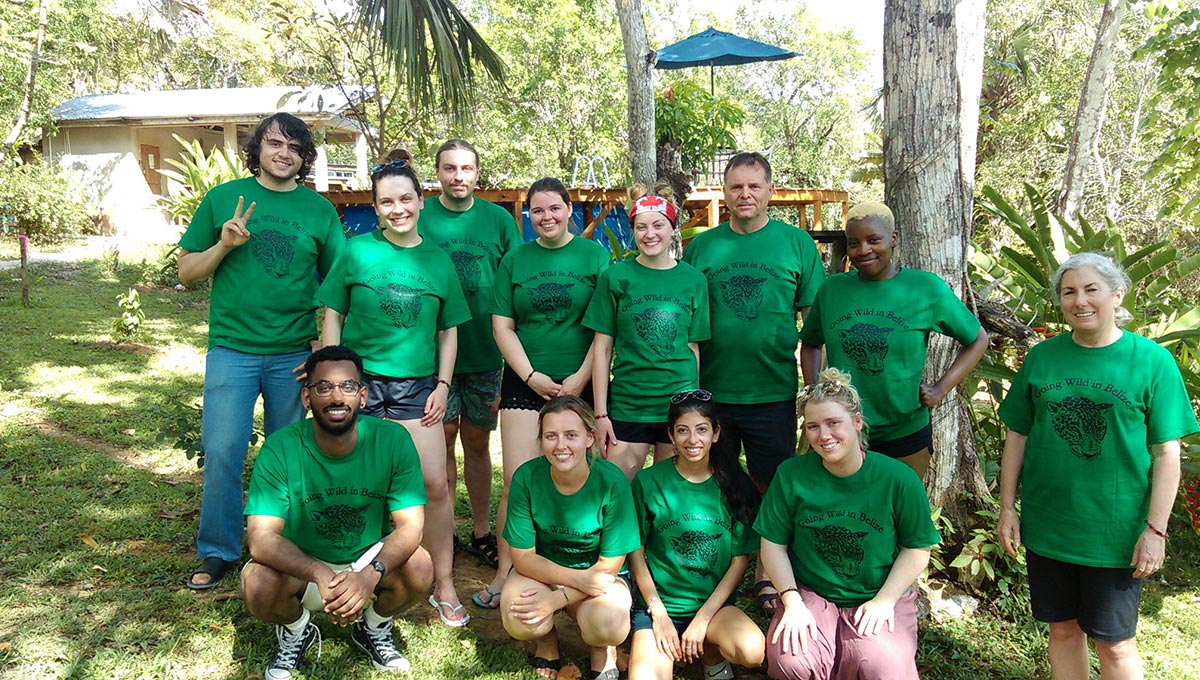
Thursday, November 22, 2018 in Experiential Learning, International, Student Experience
Share: Twitter, Facebook
